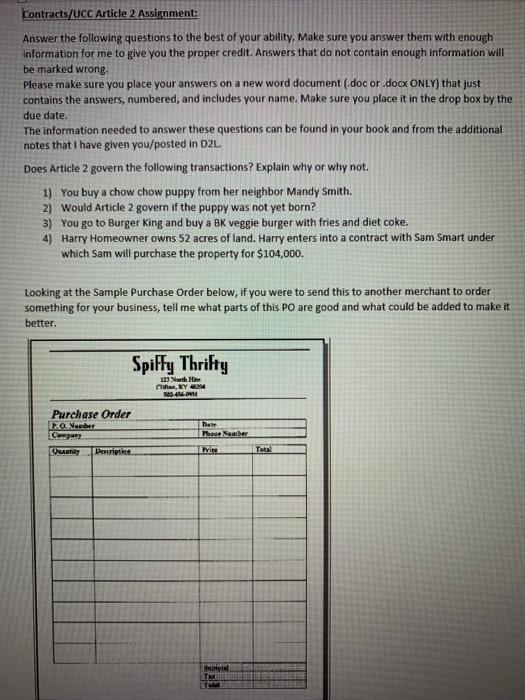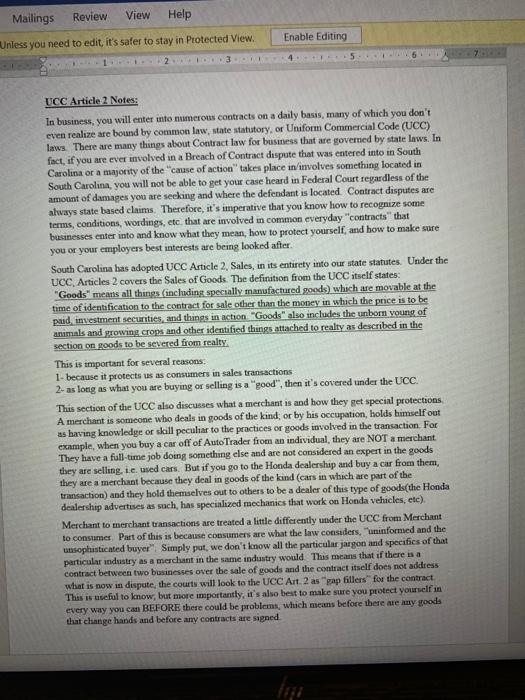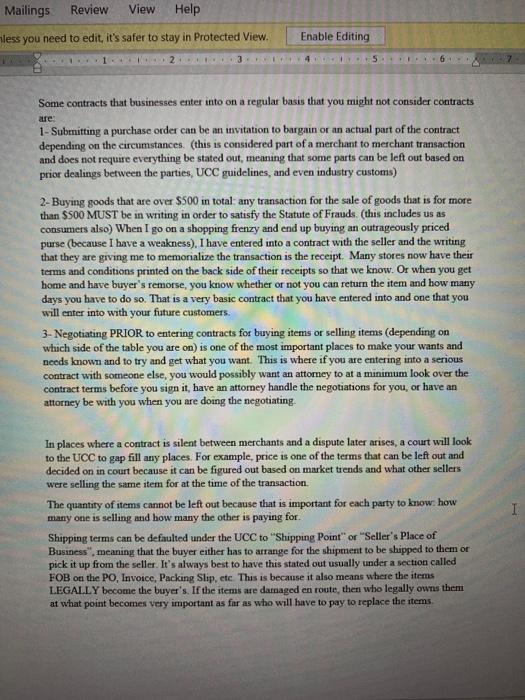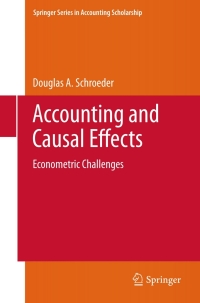Contracts/UCC Article 2 Assignment: Answer the following questions to the best of your ability. Make sure you answer them with enough Information for me to give you the proper credit. Answers that do not contain enough information will be marked wrong. Please make sure you place your answers on a new word document (.doc or .docx ONLY) that just contains the answers, numbered, and includes your name. Make sure you place it in the drop box by the due date. The information needed to answer these questions can be found in your book and from the additional notes that I have given you/posted in D2L. Does Article 2 govern the following transactions? Explain why or why not. 1) You buy a chow chow puppy from her neighbor Mandy Smith. 2) Would Article 2 govern if the puppy was not yet born? 3) You go to Burger King and buy a BK veggie burger with fries and diet coke. 4) Harry Homeowner owns 52 acres of land. Harry enters into a contract with Sam Smart under which Sam will purchase the property for $104,000. Looking at the Sample Purchase Order below, if you were to send this to another merchant to order something for your business, tell me what parts of this PO are good and what could be added to make it better. Spiffy Thrifty 123 Nude ihan, KY GUMA 50 46001 Purchase Order PO Neder Camery Variety Der here MN Newber Irie Total IN Mailings Review View Help Enable Editing Unless you need to edit, it's safer to stay in Protected View. UCC Article 2 Notes: In business, you will enter into numerous contracts on a daily basis, many of which you don't even realize are bound by common law, state statutory, or Uniform Commercial Code (UCC) laws. There are many things about Contract law for business that are governed by state laws. In fact, if you are ever involved in a Breach of Contract dispute that was entered into in South Carolina or a majority of the cause of action takes place in/involves something located in South Carolina, you will not be able to get your case heard in Federal Court regardless of the amount of damages you are seeking and where the defendant is located Contract disputes are always state based claims. Therefore, it's imperative that you know how to recognize some terms, conditions, wordings, etc. that are involved in common everyday "contracts that businesses enter into and know what they mean, how to protect yourself, and how to make sure you or your employers best interests are being looked after South Carolina has adopted UCC Article 2. Sales, in its entirety into our state statutes. Under the UCC, Articles 2 covers the Sales of Goods. The definition from the UCC itself states: "Goods" means all things (including specially manufactured goods) which are movable at the time of identification to the contract for sale other than the money in which the price is to be paid investment securities and things in action "Goods" also includes the unborn young of animals and growing crops and other identified things attached to realty as described in the section on goods to be severed from realty This is important for several reasons 1. because it protects us as consumers in sales transactions 2- as long as what you are buying or selling is a "good", then it's covered under the UCC This section of the UCC also discusses what a merchant is and how they get special protections A merchant is someone who deals in goods of the kind, or by his occupation, holds himself out as having knowledge or skill peculiar to the practices or goods involved in the transaction. For example, when you buy a car off of Auto Trader from an individual, they are NOT a merchant They have a full-time job doing something else and are not considered an expert in the goods they are selling, 1.c. used cars. But if you go to the Honda dealership and buy a car from them, they are a merchant because they deal in goods of the kind (cars in which are part of the transaction) and they hold themselves out to others to be a dealer of this type of goods (the Honda dealership advertises as such, has specialized mechanics that work on Honda vehicles, etc). Merchant to merchant transactions are treated a little differently under the UCC from Merchant to consumer Part of this is because consumers are what the law considers, uninformed and the unsophisticated buyer" Simply put, we don't know all the particular jargon and specifics of that particular industry as a merchant in the same industry would This means that if there is a contract between two businesses over the sale of goods and the contract itself does not address what is now in dispute, the courts will look to the UCC Art. 2 as pap fillers" for the contract This is useful to know, but more importantly, it's also best to make sure you protect yourself in every way you can BEFORE there could be problems, which means before there are any goods that change hands and before any contracts are signed Mailings Review View Help less you need to edit, it's safer to stay in Protected View. Enable Editing 3 4 5 Some contracts that businesses enter into on a regular basis that you might not consider contracts are 1- Submitting a purchase order can be an invitation to bargain or an actual part of the contract depending on the circumstances. (this is considered part of a merchant to merchant transaction and does not require everything be stated out, meaning that some parts can be left out based on prior dealings between the parties, UCC guidelines, and even industry customs) 2-Buying goods that are over $500 in total any transaction for the sale of goods that is for more than $500 MUST be in writing in order to satisfy the Statute of Frauds (this includes us as consumers also) When I go on a shopping frenzy and end up buying an outrageously priced purse (because I have a weakness). I have entered into a contract with the seller and the writing that they are giving me to memorialize the transaction is the receipt. Many stores now have their terms and conditions printed on the back side of their receipts so that we know. Or when you get home and have buyer's remorse, you know whether or not you can return the item and how many days you have to do so. That is a very basic contract that you have entered into and one that you will enter into with your future customers. 3- Negotiating PRIOR to entering contracts for buying items or selling items (depending on which side of the table you are on) is one of the most important places to make your wants and needs known and to try and get what you want. This is where if you are entering into a serious contract with someone else, you would possibly want an attorney to at a minimum look over the contract terms before you sign it, have an attorney handle the negotiations for you, or have an attorney be with you when you are doing the negotiating. In places where a contract is silent between merchants and a dispute later arises, a court will look to the UCC to gap fill any places. For example, price is one of the terms that can be left out and decided on in court because it can be figured out based on market trends and what other sellers were selling the same item for at the time of the transaction. The quantity of items cannot be left out because that is important for each party to know how many one is selling and how many the other is paying for. Shipping terms can be defaulted under the UCC to "Shipping Point" or "Seller's Place of Business", meaning that the buyer either has to arrange for the shipment to be shipped to them or pick it up from the seller. It's always best to have this stated out usually under a section called FOB on the PO, Invoice, Packing Slip, etc. This is because it also means where the items LEGALLY become the buyer's. If the items are damaged en route, then who legally owns them at what point becomes very important as far as who will have to pay to replace the items









